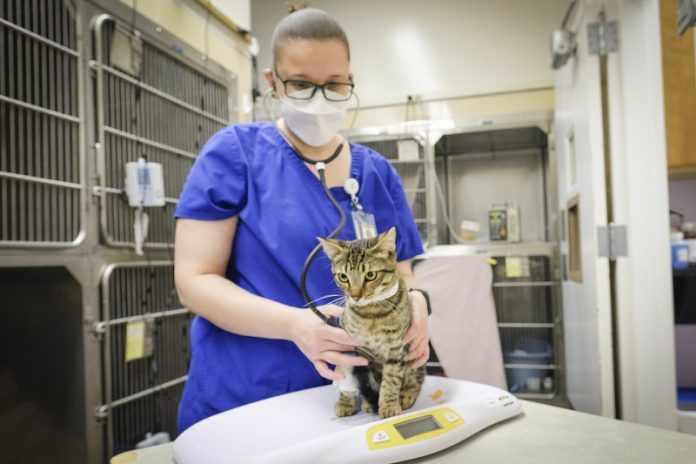
A serious disease in cats may help scientists better understand long COVID in humans.
The disease, called feline infectious peritonitis (FIP), is caused by a type of coronavirus, just like COVID-19.
For years, FIP was almost always fatal, but new treatments are giving cats a second chance—and offering clues about how the immune system behaves after a viral infection.
Researchers at the University of California, Davis, recently discovered that a type of cell therapy, when combined with antiviral drugs, helped cats with FIP recover more completely.
The treatment reduced inflammation and helped the cats’ immune systems return to normal.
Their study, published in Stem Cells Translational Medicine, could have implications for treating lingering health issues in people after COVID-19.
Normally, feline coronavirus causes only mild digestive issues in cats.
But in some cases, especially in young cats in shelters or breeding facilities, the virus mutates and spreads through the body, leading to FIP.
The disease can show up in two ways: “wet” FIP, which causes fluid to collect in the chest or belly, and “dry” FIP, which leads to organ inflammation without fluid buildup. Both types cause serious symptoms like fever, organ damage, and loss of key immune cells.
Back in 2018, UC Davis researchers found that an antiviral drug called GS-441524 could cure cats with FIP.
But for years, the drug wasn’t available in the United States. Only recently has a U.S. veterinary pharmacy begun making it available. As a result, researchers haven’t had many chances to study what happens to cats after they recover.
In this new study, lead researcher Dr. Amir Kol noticed that some cats who survived FIP still had enlarged lymph nodes—an indication that their immune systems were still highly active. That’s similar to what happens in some people after recovering from COVID-19, a condition often called long COVID.
To see if they could help these cats recover fully, Kol’s team tested a therapy using mesenchymal stromal cells (MSCs), which are known for calming inflammation and supporting immune balance. In a clinical trial, one group of cats received antiviral drugs plus MSC infusions, while a second group received the antiviral drug and a placebo.
All the cats survived, but the ones treated with MSCs showed better immune recovery. They had fewer overactive immune cells and more regulatory cells, which help keep the immune system in check. Their immune cells also showed signs of regaining strength and developing “memory,” which can protect against future infections.
The treatment was safe and well-tolerated. Beyond helping cats, this research offers a powerful model for understanding long-term immune problems in people recovering from viral infections. Dr. Kol says studying pet diseases like FIP can lead to new treatments that benefit both animals and humans alike.
If you care about COVID, please read studies about vitamin D deficiency linked to severe COVID-19, death, and how diets could help manage post-COVID syndrome.
For more health information, please see recent studies that low-sodium plant-based diets may prevent COVID-19 better, and results showing zinc could help reduce COVID-19 infection risk.



